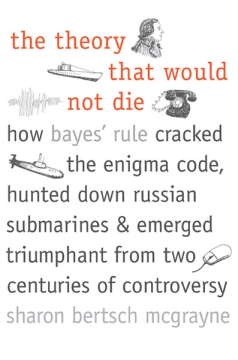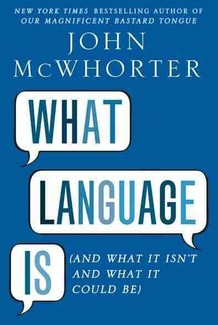- HOME
- INTRO TO THE FORUM
- USE AND MISUSE
- BADLY WRITTEN, BADLY SPOKEN
- GETTING
TO KNOW ENGLISH - PREPARING FOR ENGLISH PROFICIENCY TESTS
- GOING DEEPER INTO ENGLISH
- YOU ASKED ME THIS QUESTION
- EDUCATION AND TEACHING FORUM
- ADVICE AND DISSENT
- MY MEDIA ENGLISH WATCH
- STUDENTS' SOUNDING BOARD
- LANGUAGE HUMOR AT ITS FINEST
- THE LOUNGE
- NOTABLE WORKS BY OUR VERY OWN
- ESSAYS BY JOSE CARILLO
- Long Noun Forms Make Sentences Exasperatingly Difficult To Grasp
- Good Conversationalists Phrase Their Tag Questions With Finesse
- The Pronoun “None” Can Mean Either “Not One” Or “Not Any”
- A Rather Curious State Of Affairs In The Grammar Of “Do”-Questions
- Why I Consistently Use The Serial Comma
- Misuse Of “Lie” And “Lay” Punctures Many Writers’ Command Of English
- ABOUT JOSE CARILLO
- READINGS ABOUT LANGUAGE
- TIME OUT FROM ENGLISH GRAMMAR
- NEWS AND COMMENTARY
- BOOKSHOP
- ARCHIVES
Click here to recommend us!
READINGS IN LANGUAGE
This section features links to interesting, instructive, or thought-provoking readings about the English language and related disciplines. The selections could be anywhere from light and humorous to serious and scholarly, and they range widely from the reading, writing, listening, and speaking disciplines to the teaching and learning of English.
Refusing to die, an 18th century numbers theory gets validated
Are you a Bayesian thinker or are you not?
You need not answer now if you don’t know what Bayesian thinking is, but it would definitely be worth it if you read Sharon Bertsch McGrayne’s recently released book, The Theory That Would Not Die: How Bayes’ Rule Cracked the Enigma Code, Hunted Down Russian Submarines and Emerged Triumphant From Two Centuries of Controversy (Yale University Press, 320 pages). McGrayne, a former prize-winning journalist and former contributing writer and editor on physics for the Encyclopaedia Britannica, makes a compelling, well-documented account of how a controversial theorem by Thomas Bayes, an 18th century Presbyterian minister and amateur mathematician, seesawed from being dismissed as vague, subjective or unscientific to being hailed as one of the most remarkable contributions to modern mathematical thought.

Stated in very simple terms, Bayes’s Theorem contends that if you want to assess the strength of your hypothesis given the evidence, you must also assess the strength of the evidence given your hypothesis. If you are a Bayesian thinker, you will ask yourself three fundamental questions about your belief: (1) “How confident am I in the truth of my initial belief?” (2) “On the assumption that my original belief is true, how confident am I that the new evidence is accurate?” and (3) “Whether or not my original belief is true, how confident am I that the new evidence is accurate?”
Such dispassionate appraisal should enable you to calculate the probability of your hypothesis in mathematical terms—a process that has seen remarkably useful applications in such diverse activities as breaking Germany’s Enigma code during World War II, decoding DNA, developing antiterrorist paradigms for national security, devising actuarial tables, and election forecasting.
In a review published in Significance magazine, Michele Bottone says that McGrayne’s The Theory That Would Not Die is a densely packed and engaging book: “At times reading like a historical account, at times like investigative journalism, at yet other times like a statistical commentary, [Bertsch McGrayne's book] does an admirable job of giving a voice to the scores of famous and non-famous people and data who contributed, for good or for worse, to its historical perambulations to the present day, in the process making the theory come alive through her prose in a way that is very accessible to the patient non-statistician.”
Read Michele Bottone’s review of The Theory That Would Not Die in Significance Magazine now!
Read John Allen Paulos’s “The Mathematics of Changing Your Mind” in The New York Times now!
ABOUT THE AUTHOR:
Sharon Bertsch McGrayne is a former prize-winning journalist for Scripps-Howard, Crain’s, Gannett, and other newspapers and a former editor and co-author of extensive articles about physics for the Encyclopaedia Britannica. Her works exploring the cutting-edge connection between social issues and scientific progress and making science clear and interesting to non-specialists have been featured in the Washington Post, New Scientist, PopularMechanics.com, and various professional science and mathematics publications. She has previously written three books on the lives and issues faced by scientists, namely Nobel Prize Women in Science, Prometheans in the Lab, and Blue Genes and Polyester Plants.
ANOTHER INTERESTING READING:
In his book What Language Is: And What It Isn’t and What It Could Be (Gotham, 240 pages), John McWhorter, professor of linguistics and Western civilization at Columbia University, debunks some of the most persistent myths about language. He says they are anything but pure, for they are complex, intermingled entities that are constantly morphing “like a lump in a lava lamp.”

Read excerpts from John McWhorter’s What Language Is in NPR.org now!
Read an interview of John McWhorter by NPR’s Tony Cox now!
Click to read comments or post a comment
View the complete list of postings in this section
(requires registration to post)







